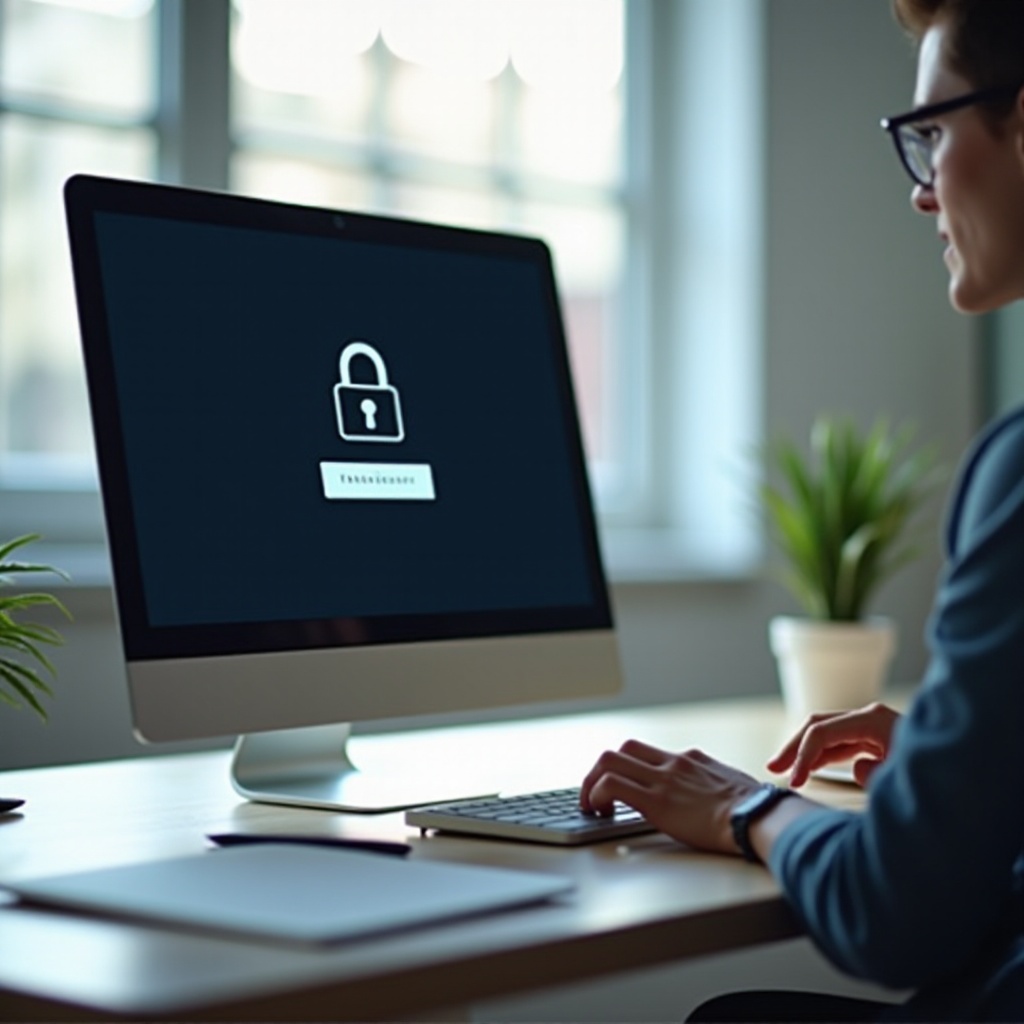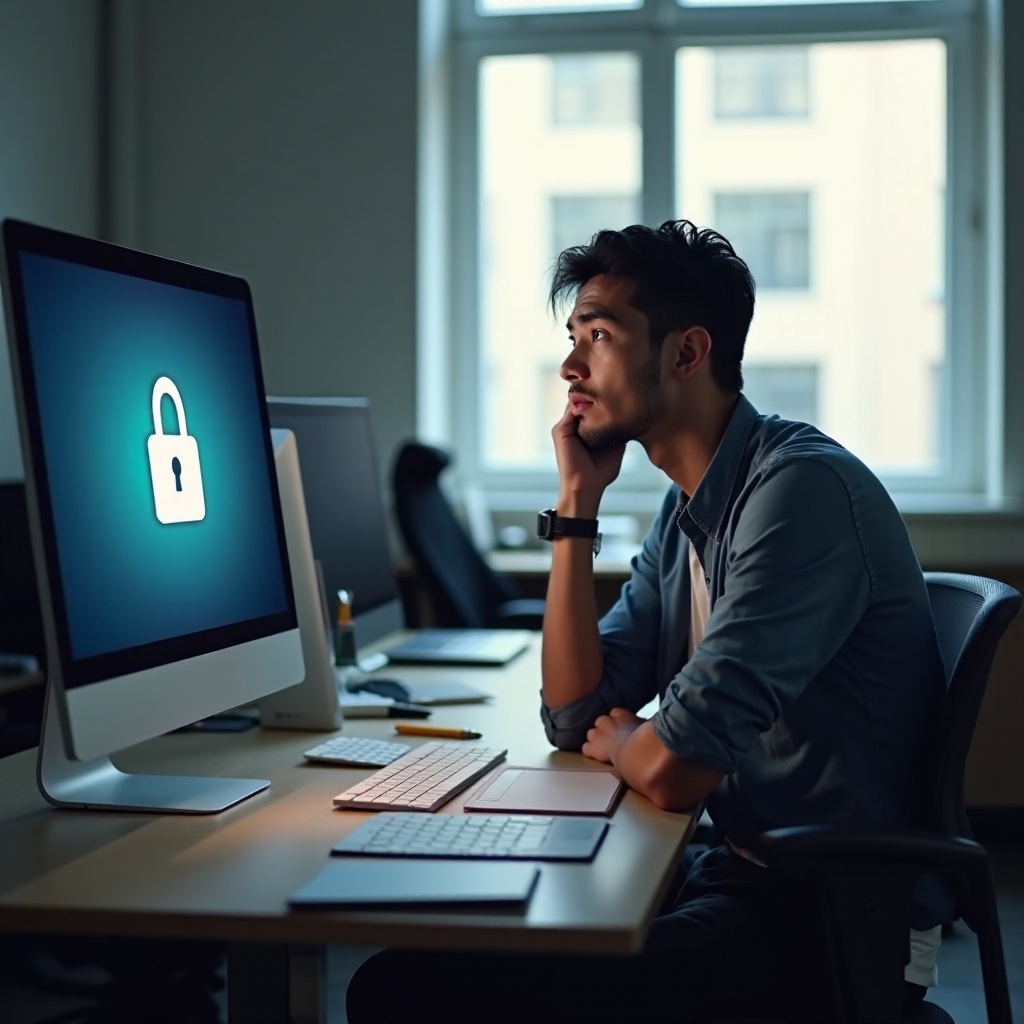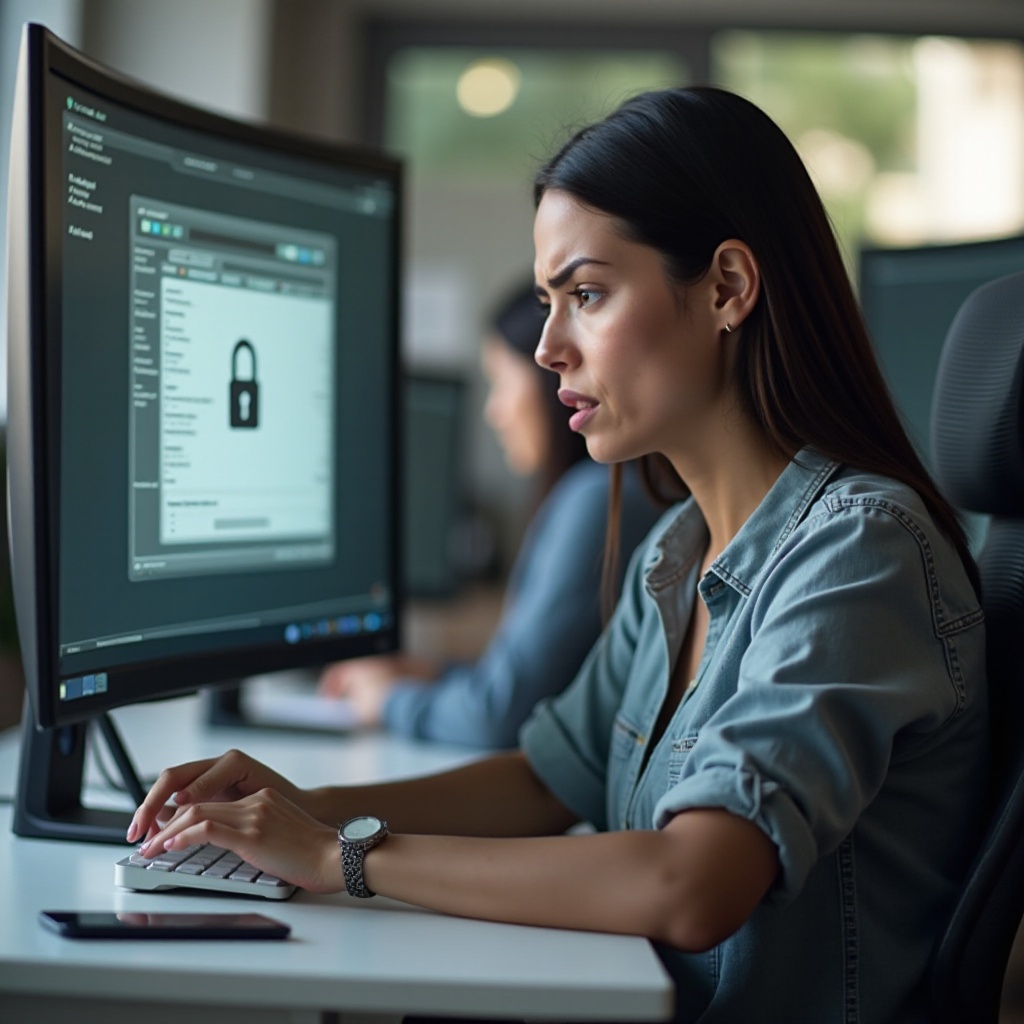Introduction
You’re in the middle of an important task, and suddenly, your computer locks. It can be incredibly frustrating, disrupting your workflow and causing delays in productivity. Whether you’re working on a project, gaming, or simply browsing, knowing why your computer keeps locking is vital to find an effective solution.
Several factors could be at play here, ranging from hardware malfunctions to software glitches. Understanding these can help you troubleshoot the issue more effectively and implement preventative measures to avoid future occurrences. This blog aims to provide you with comprehensive insights into why your computer keeps locking and how to resolve these issues. From hardware checks to software scans, read on to find out everything you need to know.

Common Causes of Computer Locking
Computer locking can stem from various hardware or software issues. Identifying these core problems is the first step toward rectifying the issue.
Hardware Issues
- Overheating: Modern computers have built-in mechanisms to protect their components by shutting down or locking when they overheat.
- Hard Drive Problems: A failing hard drive can cause the system to lock up as it struggles to read or write data.
- Inadequate RAM: Insufficient RAM can result in your computer becoming unresponsive under heavy loads.
Software Problems
- Outdated Drivers: Drivers act as intermediaries between your hardware and software. Outdated drivers can lead to compatibility issues that cause the system to lock.
- Malware Attacks: Malicious software can harm your system’s performance.
- Corrupted System Files: Essential system files are necessary for your computer to function correctly. If these files are corrupted, the system may lock.
Next, let’s delve deeper into how to troubleshoot hardware problems effectively.

Troubleshooting Hardware Problems
When you suspect hardware issues are responsible for your computer locking, these are some of the crucial steps you can take for troubleshooting.
Checking for Overheating
Overheating is a common cause of computer locking.
- Inspect Air Vents: Ensure that air vents are not blocked.
- Clean Dust: Dust can clog the internal components causing heat buildup. Use compressed air to clean your system.
- Check Cooling System: Make sure that your computer’s cooling fans are functioning properly.
If overheating isn’t the issue, it’s time to look at your hard drive.
Testing Your Hard Drive
A malfunctioning hard drive can be the culprit.
- Use Disk Utility Tools: Tools like CHKDSK for Windows or Disk Utility for Mac can help diagnose and repair issues.
- Listen for Noises: Strange noises such as clicking or grinding can indicate a failing hard drive.
Upgrading your hardware can offer long-term solutions if your system falls short of handling its routine tasks.
Upgrading RAM
Upgrading RAM is a straightforward solution for improving overall system performance.
- Check Compatibility: Ensure the new RAM is compatible with your motherboard.
- DIY Installation: If you are comfortable with hardware, you can upgrade the RAM yourself; otherwise, consult a technician.
With the hardware aspects covered, we now turn our focus to troubleshooting software issues.
Addressing Software Issues
Software problems are often the hidden culprits behind computer locking. Fixing these can significantly improve the stability of your machine.
Updating Drivers
Drivers play a vital role in the smooth performance of your computer.
- Identify Outdated Drivers: Use a driver update tool or manually check each device in the Device Manager.
- Download Updates: Visit the manufacturer’s website to download and install the latest drivers.
Scanning for Malware
Malware can drastically affect system performance, causing it to lock up.
- Use Anti-Malware Software: Run a full system scan with reliable anti-malware software.
- Quarantine and Remove Threats: Follow the tool’s recommendations to quarantine and remove any detected threats.
If malware isn’t the issue, corrupted system files might be.
System File Checker
Corrupted system files can cause your computer to be unstable.
- Run SFC Command: Open Command Prompt and run the ‘sfc /scannow’ command.
- Follow Instructions: Allow the tool to find and repair any integrity violations.
With the immediate software issues addressed, let’s look at how you can prevent future occurrences.
Preventative Measures
Preventative measures ensure your computer remains in good health and minimizes the chances of recurrent locking.
Routine Maintenance
Regular maintenance can prolong your computer’s life.
- Scheduled Scans: Regularly scan for malware and update software.
- Backup Data: Always keep a backup of important data.
Avoiding Conflicting Software
Multiple software tools with similar functionalities can cause conflicts.
- Limit Software: Avoid running multiple identical software simultaneously.
- Uninstall Redundant Programs: Keep only the essential programs installed.
Finally, let’s wrap things up and answer some frequently asked questions.

Conclusion
Your computer locking can be due to several hardware or software issues. Identifying these problems through systematic troubleshooting can help you find an effective solution. By addressing overheating problems, testing your hard drive, or upgrading the RAM, you can resolve most hardware-related issues. On the software side, keeping drivers updated, scanning for malware, and repairing system files can significantly improve your system’s stability. Implementing regular maintenance and avoiding conflicting software will help prevent future problems.
If you follow the steps and preventative measures outlined in this guide, you’ll likely find a solution to your computer locking issue and improve your system’s overall health.
Frequently Asked Questions
How can I tell if my computer is overheating?
You can tell if your computer is overheating by checking the system temperature using built-in BIOS/UEFI settings or third-party software tools like HWMonitor. Listen for unusual noises from the cooling fans and observe if the system becomes hot to the touch.
What should I do if my hard drive is failing?
If your hard drive is failing, back up your data immediately to prevent loss. Use diagnostic tools to verify the condition. If the hard drive is confirmed as failing, replace it. You can clone the failing drive to a new one using tools like Clonezilla.
How often should I clean my computer to prevent locking?
It’s advisable to clean your computer every three to six months. Regular cleaning includes removing dust from vents, fans, and internal components. Keeping the environment around your computer clean can reduce the buildup of dust.